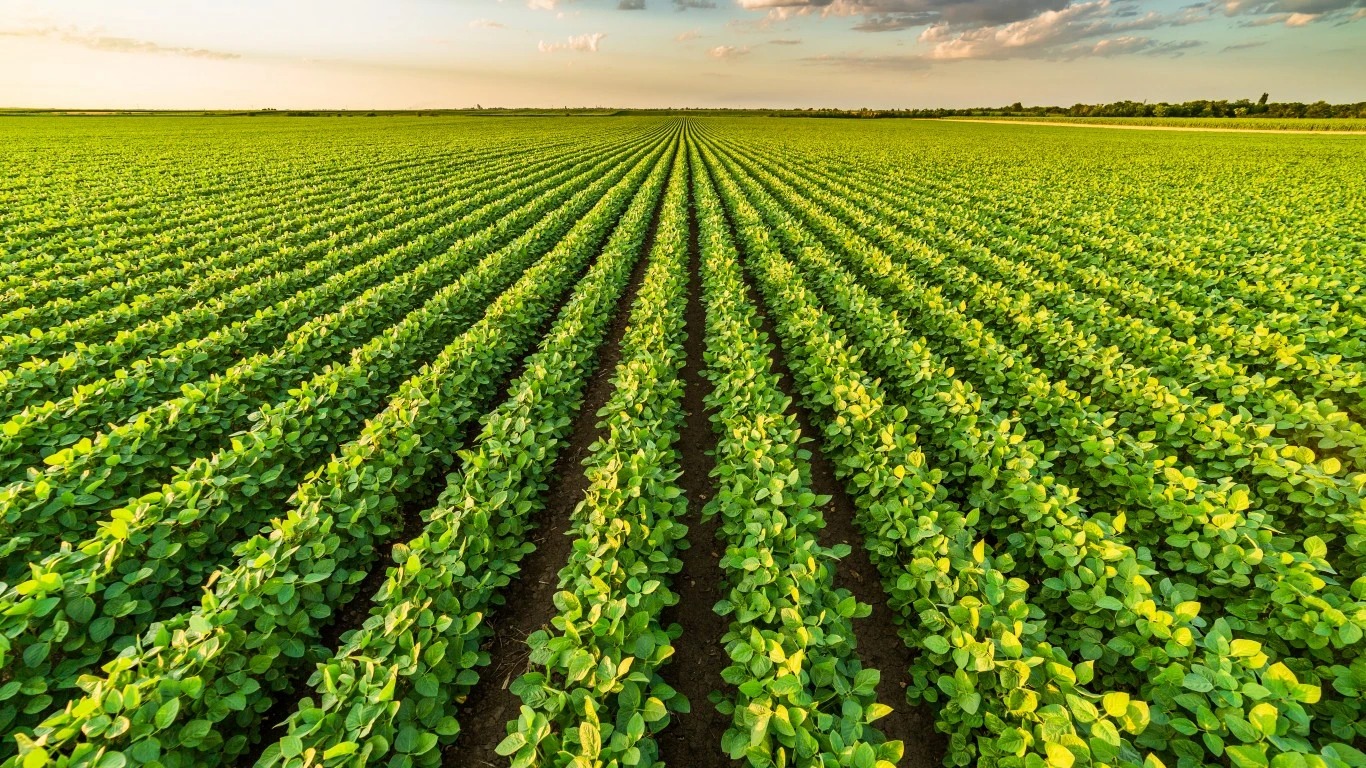
Given the market turbulence and uncertainty we’ve seen this past year, investors are increasingly looking for ways to safeguard and preserve their wealth as the economy continues to shift.
One option increasing in popularity as of late is farmland.
Yes, farmland is a long-term investment that can help mitigate the impact of inflation on your portfolio. As markets fluctuate and traditional investments falter, agricultural properties have consistently held their value and provided stakeholders with a reliable source of return.
Now, as the economy and markets feel their first tremors of future uncertainty, people are looking to this long-time asset class with a new appreciation and in a very big way.
Why Farmland?
Farmland has been considered a relatively safe and reliable investment for decades, but now it’s attracting more attention than ever. Land is a finite resource, so its value is likely to only increase as time goes on and options become scarcer.
In addition, investing in farmland is a fundamental way to benefit from the growing worldwide demand for food. It’s simple, humans need to eat and food production will always be required, regardless of economic conditions or geopolitical events. In fact, the escalation in the Russo-Ukrainian War alone sparked more interest in stable US farmland potential.
Strong Performance
In a time of economic uncertainty, the prospect of historically steady returns is attractive – especially when those returns come from something as fundamental as food production. Farmland is one of the few asset classes to have historically achieved strong and consistent returns over time.
While the S&P 500 has historically generated annualized returns of around 10%, the average annual return for farmland has been roughly 11% over the three decades. The research, compiled by the farmland investment manager FarmTogether using data from NCREIF and other sources, looked at income plus price appreciation from 1992 to 2021 and found strong absolute returns.
Low Volatility
Farmland is historically less volatile than many other assets, such as stocks and bonds, because it doesn’t rely on market demand or investor sentiment to appreciate in value. Parcels of land are usually more stable, and often held for very long periods of time, which smooths out price fluctuations over the long term.
The price of farmland generally only rises when there is an increase in demand for agricultural products or other goods produced by farms. This means that farmland has been relatively immune to the effects of economic downturns over the long term and has historically outperformed other asset classes during periods of uncertainty.
Uncorrelated Returns
Unlike asset classes such as stocks or bonds, whose performance has traditionally been correlated with economic performance, farmland has historically been uncorrelated with the stock market and other financial assets. Although stock prices often drop dramatically, land values have remained relatively stable – and even increased – because they are not tied to stock markets or other financial assets that often experience dramatic downturns during recessions.
As a result, farmland can be an excellent way to protect against risk in your portfolio while providing a historically reliable income stream over time. And as the demand for food increases worldwide, land values are likely to always increase, making it an even more attractive investment opportunity.
Inflation Hedge
The price of farmland has continued to rise steadily since 1988, according to the United States Department of Agriculture (USDA). The value of farmland is likely to continue along this trend. Farmland is one of the only investments that historically protects your money from inflation while producing income simultaneously.
In fact, according to data from the National Council of Real Estate Investment Fiduciaries (NCREIF) Property Index, farmland has had returns of over double the rate of inflation since 1992.
A Safe Haven
Like gold, agricultural land historically maintains or increases its value even in periods of market volatility. The reason is simple: farmland provides investors with a tangible asset that offers similar benefits to gold but with a historically greater return on investment.
Farmland’s resilience is partly due to its unique characteristics as an investment asset class. Unlike other real estate investments – such as office buildings or shopping malls – farmland does not depreciate over time because it is not an industrial product but rather a commodity that produces food and fiber for human consumption.
The current economic climate has created a high demand for agricultural products; this creates an opportunity for investors who want to capitalize on this demand by purchasing agricultural land for future development or resale purposes. Indeed, the USDA reports that net farm income is up nearly 14% – a 19 billion dollar increase on top of 2021’s astronomical increase in farming profits (a 49.9% increase).
Increasing Land Values
Land values have increased significantly over the past few years and are expected to continue rising as demand increases. The NCREIF has tracked farmland prices since 2000 and notes they’ve gone up sharply. The NCREIF Farmland Index (NFI) tracks the value of U.S. row and permanent cropland, which is a convenient way to measure farmland prices.
As of the third quarter of 2022, NFI’s market value reached a new record of $14.9 billion.
FarmTogether has a unique approach; an inclusive crowdfunding platform investing in farmland and offering fractional farmland ownership. FarmTogether provides accredited investors with unparalleled farmland opportunities across the country, without the steep price tag or previously required farming know-how.
This article was produced and syndicated by Wealth of Geeks.
Sponsored: Tips for Investing
A financial advisor can help you understand the advantages and disadvantages of investment properties. Finding a qualified financial advisor doesn’t have to be hard. SmartAsset’s free tool matches you with up to three financial advisors who serve your area, and you can interview your advisor matches at no cost to decide which one is right for you. If you’re ready to find an advisor who can help you achieve your financial goals, get started now.
Investing in real estate can diversify your portfolio. But expanding your horizons may add additional costs. If you’re an investor looking to minimize expenses, consider checking out online brokerages. They often offer low investment fees, helping you maximize your profit.






